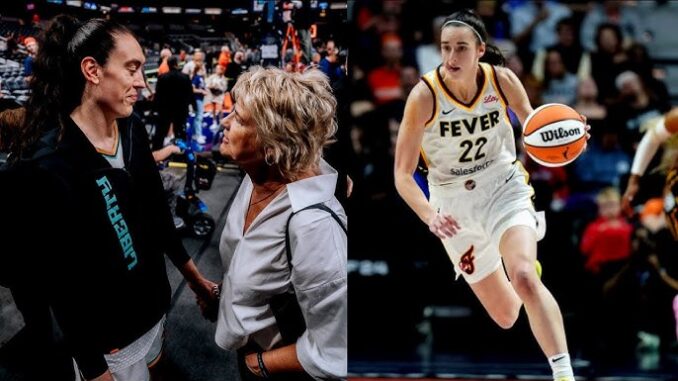
A recent debate within the WNBA about race and representation has sparked conversations across sports media, particularly surrounding Iowa star Caitlin Clark’s potential role in the league. One former WNBA star has weighed in on how Clark, a white athlete, fits into this complex narrative, which touches on issues of race, media coverage, and the historical marginalization of Black athletes in women’s sports.
Caitlin Clark’s rise to prominence has been meteoric. She has become one of the most talked-about college basketball players, drawing comparisons to WNBA stars like Diana Taurasi and Sue Bird. Her exceptional skills and ability to dominate on the court have earned her widespread praise. However, some critics argue that her rise to stardom, particularly in terms of media attention, reflects deeper systemic issues related to race in women’s basketball.
The former WNBA star has expressed that while Clark’s talent is undeniable, the heightened attention she receives may also be reflective of an ongoing racial imbalance in how athletes are covered and celebrated. The media has historically shown a pattern of amplifying the success of white athletes while often overlooking or undervaluing the achievements of Black players, particularly in the WNBA, a league that is predominantly made up of Black women.
This ongoing “race war” within the league speaks to broader cultural and institutional dynamics. Black athletes have long fought for equitable recognition, not only for their athletic achievements but also for their role as leaders in advancing social justice issues. In contrast, white athletes like Clark are sometimes positioned as the “faces” of the sport, benefitting from more favorable media narratives and endorsements.
The former WNBA star emphasized that Clark’s entrance into the league could exacerbate these existing tensions. While it’s crucial to celebrate Clark’s talents, there’s also a need to address the racial disparities in coverage and opportunity. She argues that the WNBA must be conscious of how it promotes its stars to ensure that Black athletes are not overshadowed or sidelined in the narrative of the league’s future.
In conclusion, Caitlin Clark is an incredibly gifted player, but her rise symbolizes larger conversations about race in sports, and the WNBA must work to foster an environment that is truly inclusive and representative of all its athletes.
Leave a Reply